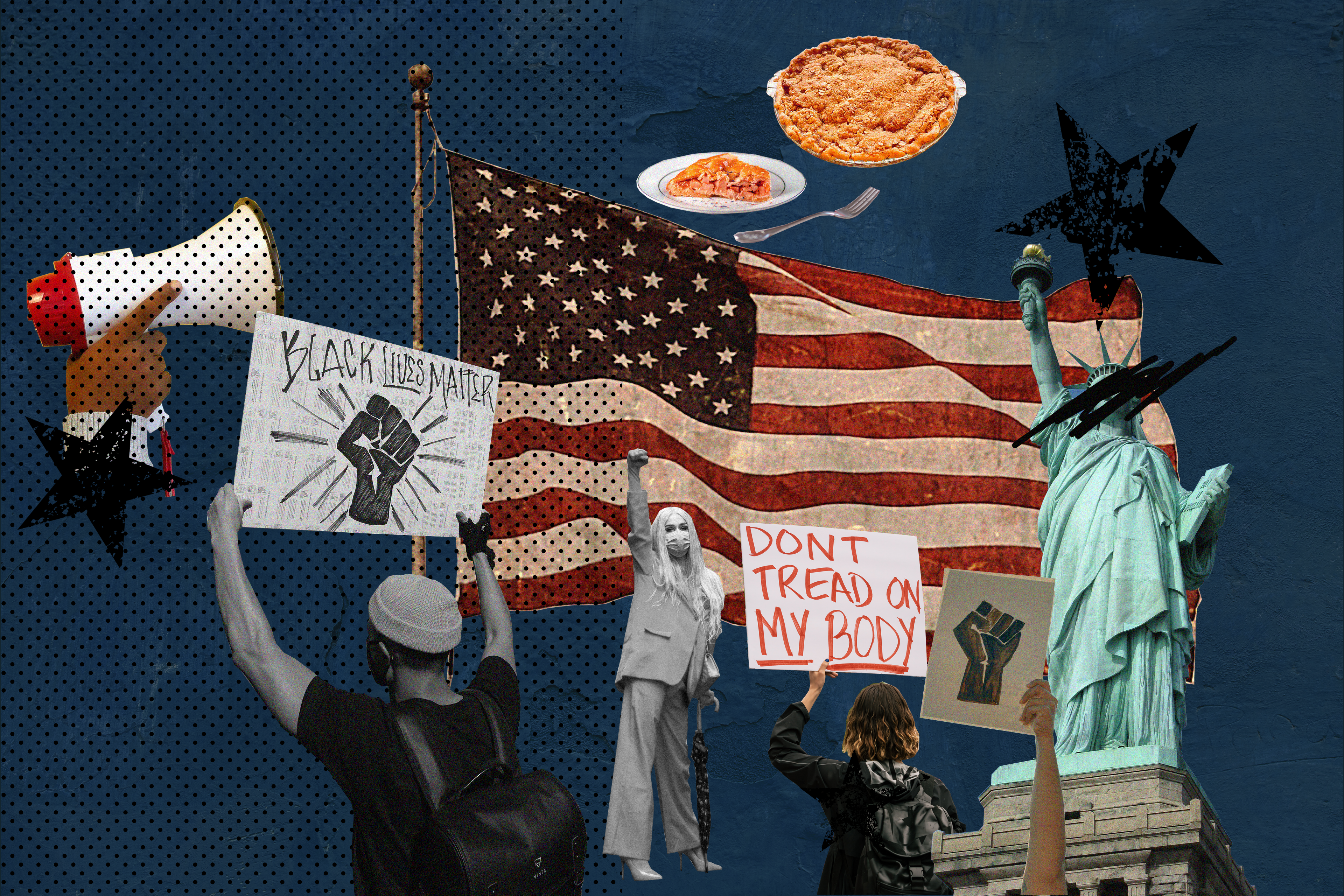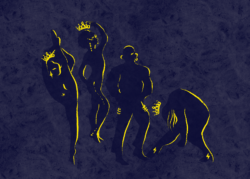Earlier this summer, smoke from the Canadian wildfires blanketed my native Western New York. The air quality reached dangerous levels, and the world outside, with the sky stained orange, looked apocalyptic. As I worked the register at my local grocery store, a man walked in and said to me, “I’m originally from California and, in a strange way, all of this is making me homesick.” Based on the genuine expression on his face, he didn’t seem to be joking.
This encounter left me confused. Obviously, there is nothing good about hazardous air and the haze it brings, nor is there anything positive associated with the wildfires producing these consequences. However, in a way, I understood his reminiscence, his yearning for home despite it being associated with something so negative. Nostalgia has no limitations—it pops up at random, unannounced, as a result of any sort of experience.
I believe that patriotism functions in the same manner. It is challenging for many to confront the strength of the nostalgia associated with pride in the United States. It can be highly blinding and, sometimes, blinding in a dangerous way. In recent years, clinging to American patriotism has led to detrimental results. Many conservative, right-wing leaders use patriotism to lead some to vote against their own interests, convincing often low-income Americans that the other side is “un-American” while lobbying for the interests of the upper class. This sort of patriotism can lead to a perceived need to defend this country at all costs and without question. Ultimately, it has turned people against both foreign and domestic entities, leading to disastrous consequences like attempts to overturn fair elections.
However, I believe that the truest form of patriotism is what can be labeled “disgruntled patriotism,” a devotion to America that is motivated by dissatisfaction with how it currently exists.
The customer’s homesickness was based on an understanding of his home’s faults. His love for his home did not seek to mask its flaws. Instead, he acknowledged them. In my opinion, this love is much stronger than one that ignores the negative aspects. When applied to patriotism, I think the most authentic form is not the blind devotion portrayed on social media. The patriotism that begins and ends with flag-flying and “USA” merch-wearing may blatantly harm individuals, highlighting American exclusion and exceptionalism. When this supposed “love of country” becomes entangled with nationalism, we see many sign on to nationalist intentions with the idea that they are “saving” or “restoring” America. This manifestation of patriotism seeks to preserve the United States in its current form or “restore” it to what it once was—even more exclusionary and discriminatory. In recent years, many on the right have claimed that left-wing individuals are unpatriotic simply because they want to improve how this country functions. I am certainly not the sole judge of what “real patriotism” looks like, but this, I think, is ridiculous.
America, at its core, was built on mass exclusion. The definition of democracy in this country has been altered time and time again because its initial manifestation only included straight white men with property, a definition that became the foundation of systemic oppression in this nation. This country continues to build upon these oppressive foundations, rooted in problematic cultural constructions around class, race, and gender. Time after time in our history and to this day, America has not met its proclaimed values for oppressed communities. Consider the failure of reconstruction and the establishment of Jim Crow laws, the exclusion of Chinese workers in the late 19th and early 20th centuries, the internment of Japanese Americans in World War II, or the barring of LGBTQ+ citizens from equal treatment—to name just a few examples. From the very beginning of this country’s settler-colonialism to the most modern manifestation of Jim Crow through the prison system, these historical examples are part of larger systems upholding the white upper-class power structure. It shows us that there is an intentional inability to establish our values for all Americans.
Patriotism should not find its foundation in this history, but rather in the advocates that challenged them. While exclusion is a fundamental part of American history, so too is resistance. Dissent is pivotal in dismantling these exclusionary visions of America. In particular, dissent rooted in fundamental principles of democracy, justice, and equality is one of the most American things imaginable. It affirms the belief that America has the potential to evolve and improve.
My point is that staking your claim as an American, especially while reckoning with the country’s problematic past, can be one of the most provocative things to do. The historical figures who upheld America’s history of exclusion would roll in their graves with the redefinition of American identity as one that includes people of color, women, queer people, and every other group that was once not seen as equal. Detaching ourselves from the U.S. is what those individuals who desired an exclusive country would want. We should not let them take this victory.
I understand that a feeling of shame certainly accompanies many Americans’ perception of their country. Given the history I have mentioned, it’s often a struggle to find anything to take pride in. The wealthy, the powerful, and the influential made historical choices that can attach deep embarrassment to the American identity. Instead, we must find pride in who we are as a people. Pride in those who strive to make change and make reparations to our dark past. Pride in those who seek to make true our alleged founding principles of all people being equal.
I want to see this country succeed and I want to see the American people not only obtain forward progress and prosperity but also recognize and address its bigoted origins. You can fight to tear down the systems of this country that have harmed so many and still maintain a semblance of love for the people we are, a shared solidarity with other Americans. As Americans, obtaining equal justice and liberty for all is what we should strive to live up to. I don’t have pride in our country’s failure to live up to its ideals, but I have pride in these ideals all the same. So don’t let anyone tell you that the fight to achieve these values is “un-American.” The fight to actualize them is what being an American is truly about.





